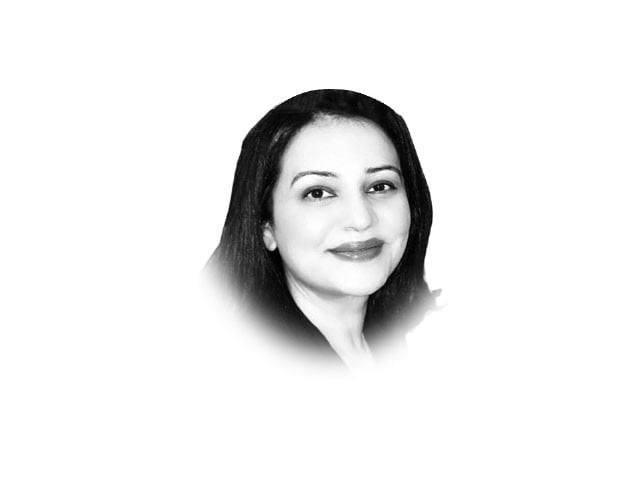March 8, 2024: inspire inclusion — how?
The Pakistani civil society does assume an ample burden of lobbying for women’s rights

Over the years, many of us, described as feminists, have detected and protested against contradictions and conflicts of interest within our own constituencies, such as human rights advocacy or the social development industry. I have no qualms about claiming that I see myself as one of the earliest within institutional arrangements to identify elitist consensus going hand in hand with patriarchal consensus. Being a survivor of misogyny in the bedroom, boardroom, and battles at the workplace, I gained piercing observational ability. The latter was further enhanced through extensive research on social exclusions, inequalities, and gender-based violence (GBV). Directly engaging with multi-level stakeholders led me to diagnose patriarchal tendencies within the system. Similar to misogynistic men, these tendencies allow no other women outside their clan to have a seat at the table.
The myriad forms of violence against children, women and girls, and trans people (not all of them criminalised) are abhorrently under-reported worldwide. Moreover, seeking justice against gender-based violence (GBV) and sexual offences is often exhausting due to structural factors such as women’s lack of autonomy, a weak criminal justice system, and insufficient societal support for women and marginalised communities. Despite efforts within this context, laws enacted to safeguard women against violence have proven largely ineffective. This is the global picture, with regional variations in terms of the stigmatization or destigmatisation of violence, as well as prosecution rates.
Despite the claims of the Pakistani governments (which, it must be remembered, largely consists of landed aristocracy and rightist religious forces programmed to proliferate patriarchal values), claims to have enhanced women’s participation in all sectors of life, Pakistan ranks 142 out of 146 countries in WEF’s global gender gap report. This means it only fares better than four countries which are Iran, Algeria, Chad, and Afghanistan. The Pakistani civil society does assume an ample burden of lobbying for women’s rights but remains effectively disempowered due to the power of bigoted forces in Pakistan and relatively dysfunctional and ineffective due to their own elite capture and their unending dependency to the extent of being driven on donors’ funds.
It is indeed uncertain whether these aspects are being considered during consultations underway under the auspices of various UN agencies, donors, and technical aid agencies while preparing reports, speeches, and statements for the forthcoming UN 68th Commission on the Status of Women (CSW 68), which will examine pathways to greater economic inclusion for women and girls everywhere. In March, as every year, the International Day of Women will also be observed on the 8th. The campaign 2024 theme is Inspire Inclusion, and the Day will focus on the theme, ‘Count Her In Accelerating Gender Equality Through Economic Empowerment’, aligning with the priority theme for CSW 68 of the UN.
It is indeed time to focus on the paramount goal of gender transformative changes in the lives of all Pakistani women and girls. There should be enough resource allocation to achieve the aim that each woman or girl who becomes a victim of violence and has already or yet to discover her determined self of hers should be able to see and believe that the abuse she has been facing is not her destiny. It is also within her reach to empower herself economically. Global research has generated evidence that economic empowerment remains a great unmet need in programmes addressing gender-based abuse and violence.
As one of the foremost Pakistani social entrepreneurs, particularly as a woman with overlapping vulnerabilities in terms of marital, socio-economic, and ethnic status, I have been endorsing social entrepreneurship to address GBV and VAWGC both, for the last three decades. Social entrepreneurship is complex and not some magic recipe to solve all issues faced by all Pakistani women and girls. However, creating enabling spaces for the socio-economic emancipation of women and girls is certainly expected to go a long way in making a positive difference. This achievable objective resonates in nearly all Sustainable Development Goals (SDGs), with SDG5 as its pivot. What could have been an obvious and inevitable political choice mysteriously becomes a mythical target. Or maybe it happens only due to entrenched social injustice and the absence of empathy in the mindsets that run the show. No wonder nobody, including disrupters and high achievers, seems to be bothered at all by the hollow manifestos of political parties in Pakistan, missing many gender equality and inclusion aspects and much more. Perhaps there is no need to get shocked in a country where women’s machineries and rights-based commissions too are almost debilitated and are directed by power, patriarchy, and pedigree principles.
Beyond, the purple colour in dresses and desserts, exciting campaign activities, the slogans and rhetoric of operationalising gender equality to create just, peaceful, and inclusive societies that achieve prosperous and just economies, voluminous rational questions with knots remain unseen, inaudible, or unanswered. Some of these harsh inquiries include: How can we take a quantum leap, not just baby steps, to invest in all categories of non-elite and vulnerable women and accelerate their progress the way they want to see it, not the way it is carved in the logical frameworks of the funders? How can those women and girls who remain excluded from high-tech and high-cost business incubators and accelerators in expensive private sector universities or donor-funded projects be accessed, included, and promoted to higher positions? What can be done by the state to ensure that women and girls are active players in their empowerment process, rather than passive participants of projects rooted in rigid technical frameworks?
Published in The Express Tribune, March 4th, 2024.
Like Opinion & Editorial on Facebook, follow @ETOpEd on Twitter to receive all updates on all our daily pieces.














COMMENTS
Comments are moderated and generally will be posted if they are on-topic and not abusive.
For more information, please see our Comments FAQ